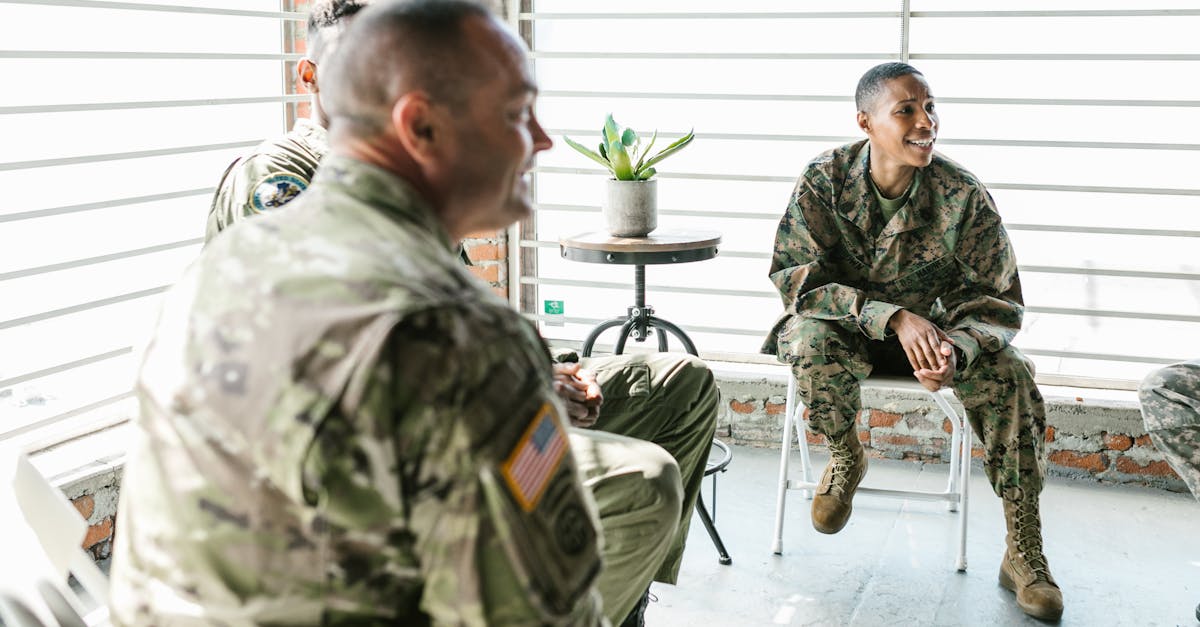
Table Of Contents
Exploring Local Libraries
Exploring local libraries is a valuable way to discover support groups in your area. Many libraries maintain community notice boards or information desks where you can find flyers or brochures about various support group meetings and activities. Take the time to browse through the bulletin boards or ask the library staff for assistance in locating information about group therapy sessions that may be occurring nearby.
Libraries often serve as gathering points for community groups, including those focused on mental health and well-being. By utilising the resources at your local library, you can potentially connect with support groups that align with your needs and interests. Check for any scheduled group therapy sessions or meetings that cater to your specific concern, and take the opportunity to reach out and engage with others who may be facing similar challenges.
Participating in Group Meetings
Once you have found a local support group that aligns with your needs and interests, it is time to participate in the group meetings. Attending these meetings can provide you with a sense of community and understanding as you navigate through your challenges. It allows you to connect with others who may be experiencing similar struggles, creating a supportive environment where you can openly share your thoughts and feelings.
In these group sessions, you will have the opportunity to engage in discussions, listen to others' experiences, and receive and offer support. The camaraderie built within these meetings can be a source of comfort and motivation as you work towards overcoming your obstacles. It is important to approach these gatherings with an open mind, willingness to participate, and respect for others' privacy and emotions. Remember that these sessions are meant to facilitate healing and growth, fostering a safe space for you to engage in Group Therapy.
Contacting Religious Institutions
Religious institutions can often be valuable resources when seeking out support groups in your local community. To start, you can reach out to different churches, mosques, temples, or other places of worship in your area. Many of these institutions host or can provide information about support groups that cater to a variety of needs. When contacting these religious organisations, inquire about any existing support groups that focus on topics relevant to your situation. It can be helpful to specify your preferences, such as whether you are seeking individual or group therapy, to ensure you are connected with the most suitable option.
Moreover, some religious institutions have partnerships with mental health organisations or community services that offer group therapy sessions. Don't hesitate to ask for recommendations or referrals to these programs when communicating with the representatives of these institutions. By expanding your search to include religious organisations in your community, you may discover additional support group opportunities that align with your personal preferences and provide a supportive environment for your healing journey.
Inquiring about Support Group Listings
One way to find local support groups is by inquiring about support group listings in your community. Many community centres and health clinics maintain lists of support groups available in the area. By reaching out to these institutions, you can access valuable information regarding group therapy sessions tailored to your specific needs.
Additionally, contacting mental health organisations or online directories can also provide comprehensive support group listings. These resources often categorise support groups based on topics such as mental health, addiction recovery, or chronic illness management. Exploring these listings can lead you to beneficial group therapy sessions that offer a supportive environment for individuals facing similar challenges.
Checking Local Newspapers
Checking local newspapers can be a great way to find local support groups in your community. Many support groups advertise their meetings and events in newspapers to reach a wider audience. Take a look at the community section or classified ads of your local newspaper to see if any support groups for various issues like mental health, addiction recovery, or grief support are listed. Also, keep an eye out for any group therapy offerings that may be advertised for those in need of professional mental health support.
Support groups that focus on specific demographics or conditions such as new parents, cancer survivors, or veterans may also advertise in local newspapers. By scanning through the newspaper regularly, you may come across support groups that cater to your specific needs or interests. Make note of the contact information provided in the advertisement and reach out to the group organiser to inquire about joining their group therapy sessions.
Finding Support Group Advertisements
Looking for support group advertisements in the local newspapers can be a fruitful way to uncover resources for Group Therapy. Many communities publish listings for various support groups catering to different needs and interests. By scanning through these advertisements, you may stumble upon a group that aligns with your requirements and offers the assistance you are seeking.
Local newspapers often provide information on when and where support group meetings occur, allowing you to plan and attend these events for Group Therapy. Additionally, newspapers might feature testimonials or stories from individuals who have benefited from participating in these groups, giving you insights into the kind of experiences and support you can expect to receive by joining a specific support group in your area.
FAQS
How can local libraries help me find a support group?
Local libraries often have bulletin boards or community resources sections where support group information may be posted. Exploring these areas can lead you to local support groups.
What should I do if I want to participate in group meetings?
If you are interested in joining a support group, you can reach out to the group facilitator or contact person to inquire about meeting schedules and locations. They will provide you with all the necessary information.
How can I get in touch with religious institutions to find support groups?
Contacting religious institutions in your area can be a good way to find support groups associated with them. Many churches, mosques, synagogues, or temples host support groups for various needs.
Where can I inquire about support group listings?
You can inquire about support group listings at community centers, hospitals, mental health clinics, or social service agencies. They often maintain directories or have information about local support groups.
How do I find support group advertisements in local newspapers?
Checking local newspapers for support group advertisements is another way to find relevant groups. Look in the classifieds section or community announcements for listings of support groups meeting in your area.
